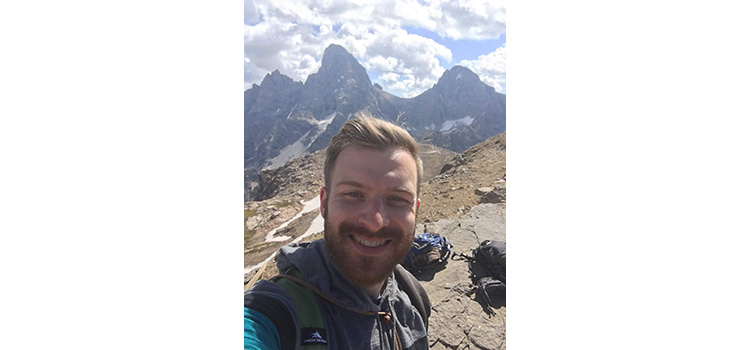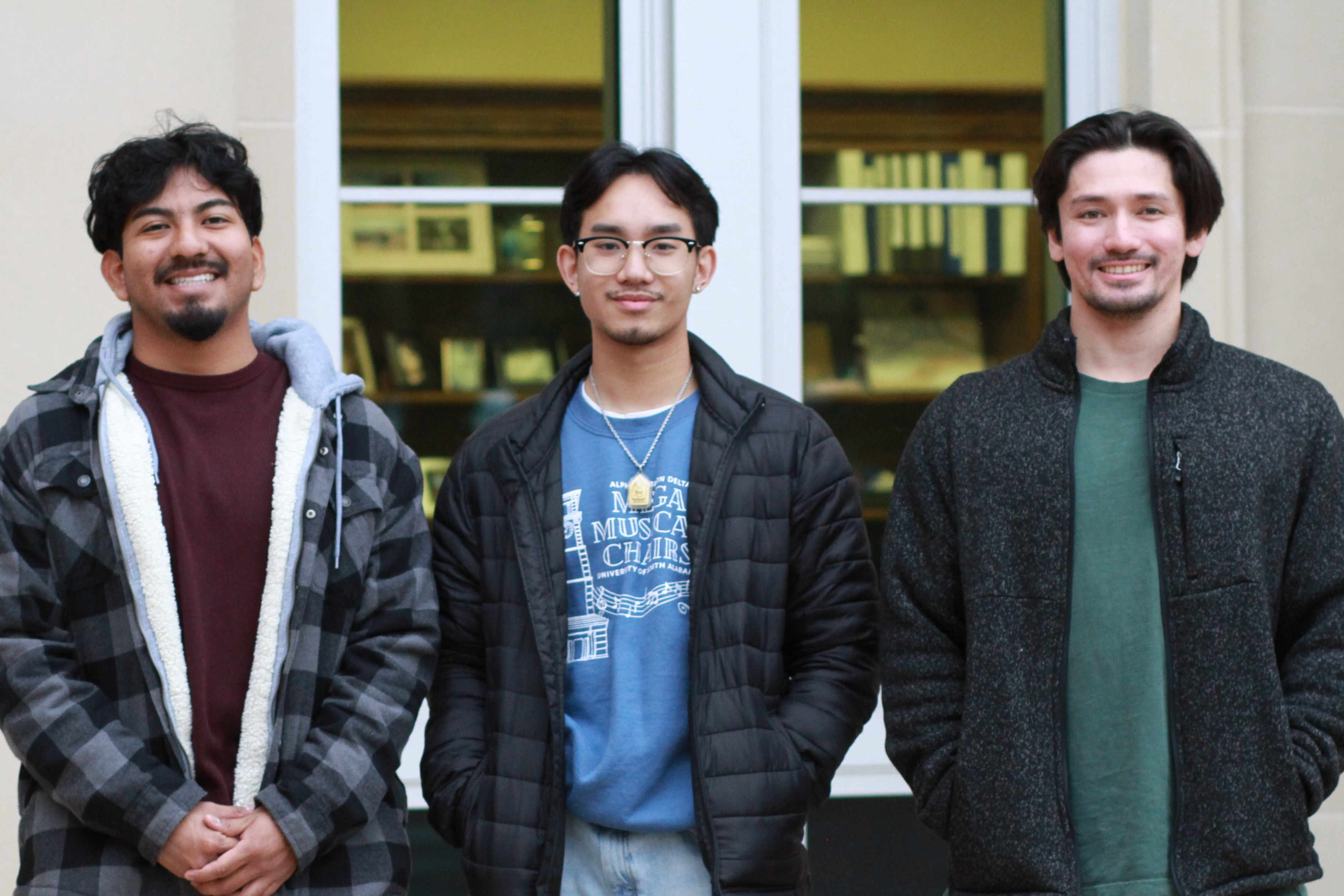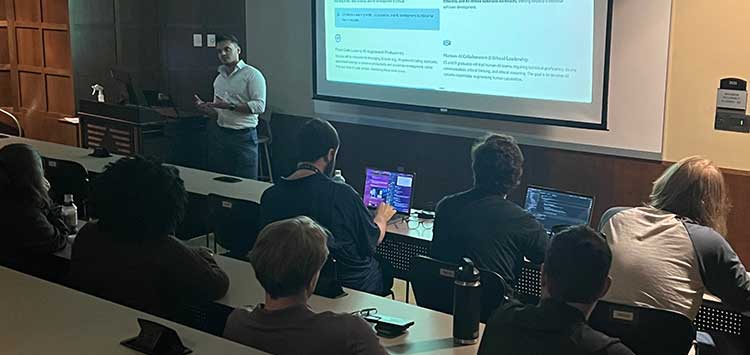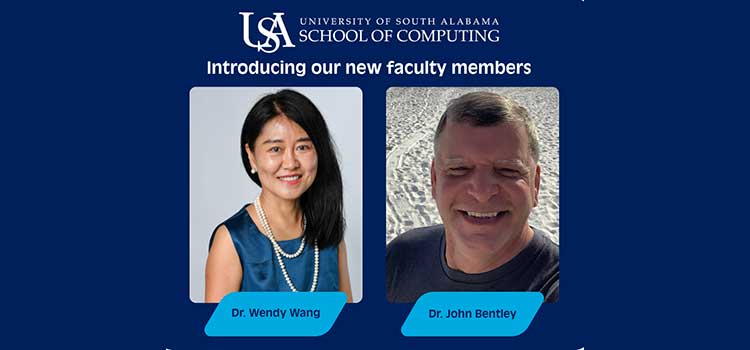Alumni Spotlight: Jim Cerkovnik
Posted on February 19, 2021 by Keith Lynn

Jim Cerkovnik
MS – Computer and Information Sciences, 2015; Scholarship for Service (SFS) student
Cybersecurity, Idaho National Laboratory (INL)
As a Cyber Security Researcher at Idaho National Laboratory (INL), Jim Cerkovnik focuses on developing data analytics to identify cyber threats to industrial processes. “I am proud to say I have helped protect our nation’s critical infrastructure against a variety of cyber threats, and taught others how to be more effective in doing the same,” Jim says.
Through his master’s program, his involvement in the Scholarship for Service (SFS) program, his participation in student organizations and cyber competitions and his internship, Jim’s experience and expertise in cyber security grew and led him to the important work he does today in protecting our nation.
During his time as a graduate student in the School of Computing, Jim says he really enjoyed learning from all the instructors, found that each had their own creative way of teaching their classes and were always available to help.
“Dr. Michael Black taught Digital Forensics (CIS 535) and Operating Systems Concepts and Security (CIS 538). In these classes, he taught us not only about important concepts, technologies, and tools, but also about how to approach problems from a forensics or security- oriented mindset, which can be a fun dichotomy to play with. I particularly enjoyed Digital Forensics with Dr. Black because it introduced me to some foundational knowledge about different types of file systems and methods of conducting forensic analysis of them. I really enjoyed working through the hands-on labs and developing my skills on the command line. Since then, I have carried all this knowledge forward and have been able to build upon it significantly, thanks to the strong foundational knowledge I learned in this class.”
Another favorite memory of his time as a student involved his participation in the Collegiate Cyber Defense Competition (CCDC). “It really challenged the limits of my IT knowledge and forced me to learn how to do new things on-the-fly,” Jim confirms.
A similarly fun and educational experience for Jim was competing in Sandia National Lab’s TracerFIRE incident response simulation while he was attending the Annual Computer Security Applications Conference (ACSAC) in 2014. According to Jim, “This exercise had an emphasis on industrial control systems security. I remember I sat down at a table with four complete strangers, all from different places, and we ended up working together surprisingly well in solving the various challenges and piecing together the simulated attack scenario.”
Jim chose to participate in the Scholarship For Service program in the School of Computing. Through this program, Jim received scholarship funding in exchange for his service in the federal government in an information assurance related job after graduation. Scholarship funding is provided by the National Science Foundation and is co-sponsored by the Department of Homeland Security.
As part of his experience in the SFS program, Jim says, “My cohort got to visit cybersecurity- focused components at two different military bases in the region. I also participated in the Cyber 9/12 competition (focused on cybersecurity and foreign policy) at American University in Washington, D.C., and attended B-Sides New Orleans in 2014 and 2015.”
Additionally, as an SFS student, Jim took a variety of security-focused courses, which helped him prepare for his internship and his current job. It also presented opportunities to engage with information security practitioners and learn about a diverse set of technical topics.
“My thesis research under the guidance of Dr. Todd McDonald, as well as my participation in a variety of Capture the Flag exercises, developed my interest in the role of operational technology (OT) in modern civilization, and the challenges we face in protecting it,” Jim states.
Jim was involved in several student organizations and volunteer opportunities while at USA. He participated in the Association of Computing Machinery (ACM), the CFITS lecture series and the SPERG research group. As part of his outreach activities for the SFS program, Jim volunteered to help with the Python Camp, served as a judge for the Jubilee BEST Robotics Competition and presented at Computing Day.
“Getting involved with each of these organizations, meetings, and outreach activities helped me develop knowledge in a variety of computing topics and provided opportunities to share my knowledge and experience with other students,” he confirms.
Jim completed his internship experience as a Masters Cybersecurity intern at Pacific Northwest National Laboratory (PNNL). He says PNNL is “where I got to collaborate with cyber researchers on developing a first-of-its-kind CTF, developing my own threat-monitoring and analytics system, and supporting the security operations team in their vulnerability testing, threat detection, triage, and analysis efforts. This exposure to a variety of sub-disciplines in information security helped me figure out which things I enjoyed most as I pursued full time positions.”
During the coronavirus pandemic, Jim has been pleased with the leadership at the Idaho
National Laboratory who he says has communicated clearly throughout and gone to great
lengths to keep everyone safe while they continue to work. He continues, “As a result,
INL has been able to continue delivering world-class research, analysis, and applied
science solutions.
Additionally, INL leadership support during COVID allowed INL to maintain an intern
population of over 450 students for the second year in a row. Students can apply to
internships at inlcareers.inl.gov.”
Jim says that he has had the opportunity to learn a great deal about industrial control
systems security, digital forensics, and cyber incident response through his education
and experiences at South, his internship and his current cybersecurity position at
the Idaho National Laboratory, and he offers these words of advice to current students:
“Your education is preparing you for great things. Continue to challenge yourselves
and exceed what is required. When you encounter a problem, research it voraciously,
and ask questions until you really understand it. Do not be afraid of asking questions
or making mistakes. If you are in computing, set up a test environment or “home lab”
to try out tools that interest you. In this test environment, it will not matter if
you crash an operating system or accidentally wipe a disk partition. Maintaining such
an environment can also be a great way to start learning system administration skills.”
“If you need resources, ask faculty what is available and how you can best leverage them. If you find yourself doing a repetitive task, try to automate it. Even if you fail, you will probably learn something useful trying. Take notes as you learn things on your own and share what you learn with your peers. Finally, get involved in extracurricular activities! Life gets busy, and there are many opportunities that are specifically geared toward students, so take advantage of those while you can,” Jim concludes.
-

SoC Students Complete Impactful Internships with USA's CSC Networking Team
SoC Students Complete Impactful Internships with USA's CSC Networ...
December 16, 2025 -

Alumnus Jay Maru Inspires Seniors to Lead in an AI-Powered Future
The School of Computing recently welcomed alumnus Jay Maru, founder of...
October 7, 2025 -

The School of Computing is excited to welcome two new faculty members this fall: Dr. Wendy Wang and Dr. John Bentley!
The School of Computing is excited to welcome two new faculty members ...
September 29, 2025 -

Two School of Computing Faculty Members receive USANAA Awards
The University of South Alabama National Alumni Association annually r...
September 2, 2025
